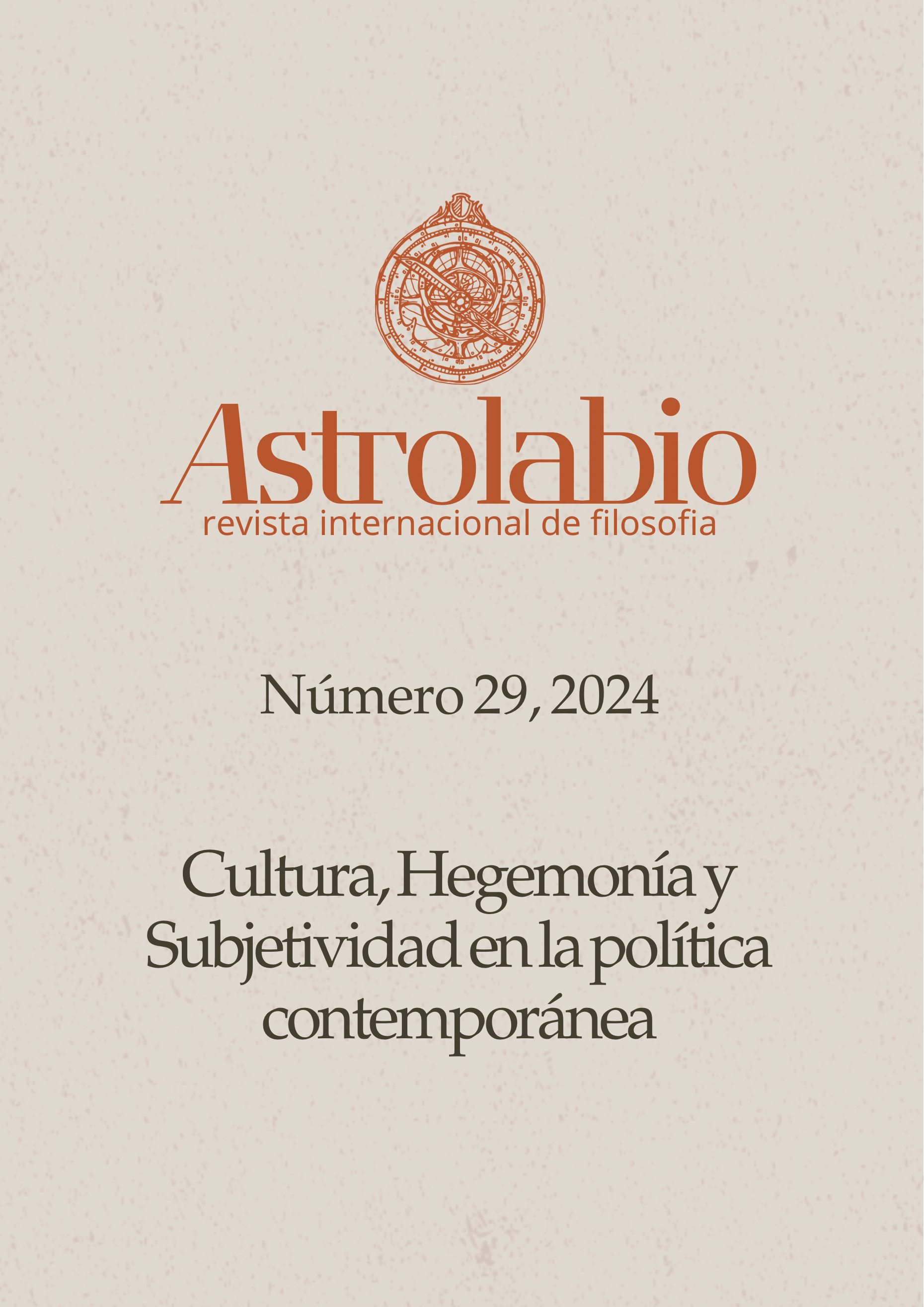The Passionate Politics of Unger
a radical variant of the Western experience
DOI:
https://doi.org/10.1344/astrolabio.v1i29.48454Keywords:
Roberto Mangabeira Unger, Christianity, Western CivilizationAbstract
This article presents and discusses the influence of Christianity on the work of the Brazilian philosopher Roberto Mangabeira Unger, who presents himself as an heir and continuator of what he sees as Western orthodoxy. It begins by examining the double Christian consciousness represented in the interpretations of Nietzsche (focusing on the question of resentment) and Unamuno (focusing on the problem of agony), both understood in the sense of forming the most characteristic values of Western civilisation. Next, we analyse the way in which Unger sees the development and translation of Christianity into the Romantic culture that flourished in European modernity. Finally, we reflect on the relationship between morality and politics, which for Unger unfolds in a specific democratic institutionality. We conclude that an order under the dominion of democratic experimentalism is better suited to the potential for the realisation of Western human identity.
References
Amato, Lucas Fucci. (2022). Propriedade Desagregada e Empreendedorismo Democrático: Instituições da economia de mercado e formas jurídicas do capital. Porto Alegre: Editora Fi.
Anderson, Perry (2002). Roberto Mangabeira Unger e a Política do Engrandecimento, Afinidades Seletivas. São Paulo: Boitempo Editorial.
Carvalho Júnior, Pedro Lino (2021). Mangabeira Unger e o Engrandecimento dos Homens e das Mulheres Comuns. In: Souza, José Crisóstomo (Org.). Filosofia, Ação, Criação. Poética Pragmática em Movimento. Salvador: Edufba.
Cleary, John and Higonnet, Patrice (1990). Plasticity into Power: Two Crises in the History of France and China, in Robert Lovin e Michael Perry (Orgs.), Critique and Construction - A Symposium on Roberto Unger´s Politics. Cambridge: Cambridge University Press.
Hawthorn, Geoffrey (1990). Practical Reason and Social Democracy: Reflections on Unger’s Passion and Politics. In: Robin Lovin and Michael Perry (Orgs.), Critique and Construction: A Symposium on Roberto Unger's Politics. New York: Cambridge University Press.
Mezan, Renato (2002). Interfaces da Psicanálise. São Paulo: Companhia das Letras.
Nietzsche, Friedrich (2011). Assim Falou Zaratustra. São Paulo: Companhia das Letras.
Rorty, Richard (1999). Unger, Castoriadis e o Romance de um Futuro Nacional, Escritos Filosóficos: Ensaios sobre Heidegger e outros. Rio de Janeiro: Relume Dumará. Vol. 2.
Simon, William (1990). Social Theory and Political Practice: Unger’s Brazilian Journalism. In: Robert Lovin e Michael Perry (Orgs), Critique and Construction - a Symposium on Roberto Unger´s Politics. Cambridge: Cambridge University Press.
Unamuno, Miguel de (1930). La Agonía del Cristianismo. Madrid: Elejandria.
Unger, Roberto Mangabeira (1999). Democracia Realizada. A Alternativa Progressista. São Paulo: Boitempo Editorial.
Unger, Roberto Mangabeira (2001). Política: Os Textos Centrais. São Paulo: Boitempo Editorial.
Unger, Roberto Mangabeira (2001b). A Segunda Via: Presente e Futuro do Brasil. São Paulo: Boitempo Editorial.
Unger, Roberto Mangabeira (2001c). Natal. São Paulo: Folha de São Paulo (25/12/2001).
Unger, Roberto Mangabeira (2007). Wider den Sachzwang: Für eine linke Politik. Berlin: Verlag Klaus Wagenbach.
Unger, Roberto Mangabeira (2014). The Religion of the Future. London: Verso.
Unger, Roberto Mangabeira (2022). Conhecimento e Política. São Paulo: Leya Brasil.
Unger, Roberto Mangabeira (2024). Paixão: Um Ensaio sobre a Personalidade. São Paulo: Leya Brasil.
Downloads
Published
How to Cite
Issue
Section
License
Copyright (c) 2024 Carlos Sávio Teixeira, Tiago Medeiros

This work is licensed under a Creative Commons Attribution 4.0 International License.
Total or partial reproduction of the works published in the Journal is permitted, provided the source is cited.
The copyright of the articles published in the Journal belongs to the authors, with first publication rights reserved for this journal. The articles will be distributed under the CC BY 4.0 license (Attribution 4.0 International).



